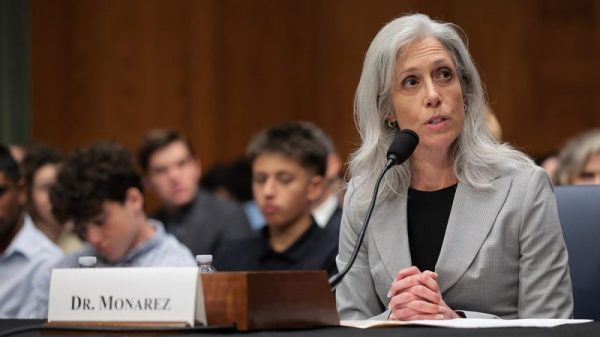In the realm of American politics, the competition for votes within various demographic groups has always been an essential battleground for candidates seeking elected office. One notable community that has attracted particular attention from political leaders is the Jewish community. With a history of strong voter turnout and influence, candidates often vie for support from Jewish voters by emphasizing their policies and stances on issues important to this community, including those related to Israel and the ongoing conflict in Gaza.
The recent conflict in Gaza, coupled with the enduring Israeli-Palestinian conflict, has reignited discussions about the role of the United States in Middle Eastern affairs. Against this backdrop, both Vice President Kamala Harris and former President Donald Trump are actively seeking to court Jewish voters, who are often divided in their views on the situation in Israel and Gaza.
Vice President Harris, a Democrat, has emphasized a diplomatic approach to the conflict, advocating for a two-state solution that recognizes the rights and aspirations of both Israelis and Palestinians. Her support for Israel is tempered by a call for restraint and de-escalation in the region, with a focus on fostering peace through dialogue and negotiation.
On the other hand, former President Trump, a Republican known for his close alignment with Israel during his time in office, has taken a more assertive stance on the Gaza conflict. Trump has voiced unequivocal support for Israel’s right to defend itself against attacks from Hamas, the militant group that governs Gaza. His administration’s policies, including the relocation of the U.S. embassy to Jerusalem and the recognition of Israeli sovereignty over the Golan Heights, solidified his relationship with many pro-Israel voters.
For Jewish voters unsettled by the ongoing violence in the region, the contrasting approaches of Harris and Trump present a complex choice. While Harris advocates for a balanced and diplomatic resolution to the conflict, Trump’s unwavering support for Israel may resonate with those seeking a more forceful response to security threats facing the Jewish state.
The dynamics of the Israel-Gaza conflict have long been a litmus test for candidates seeking support from Jewish voters, who often prioritize the security of Israel and the protection of Jewish communities worldwide. This has led both Harris and Trump to carefully navigate their positions on the conflict, understanding that their stance could sway the allegiance of Jewish voters in key electoral battlegrounds.
As the United States grapples with its role in promoting peace in the Middle East, the competition for Jewish votes continues to shape political discourse and policy decisions. How candidates like Harris and Trump address the complexities of the Israel-Gaza conflict will undoubtedly influence the support they receive from Jewish voters, underscoring the significance of this demographic group in American politics.


































